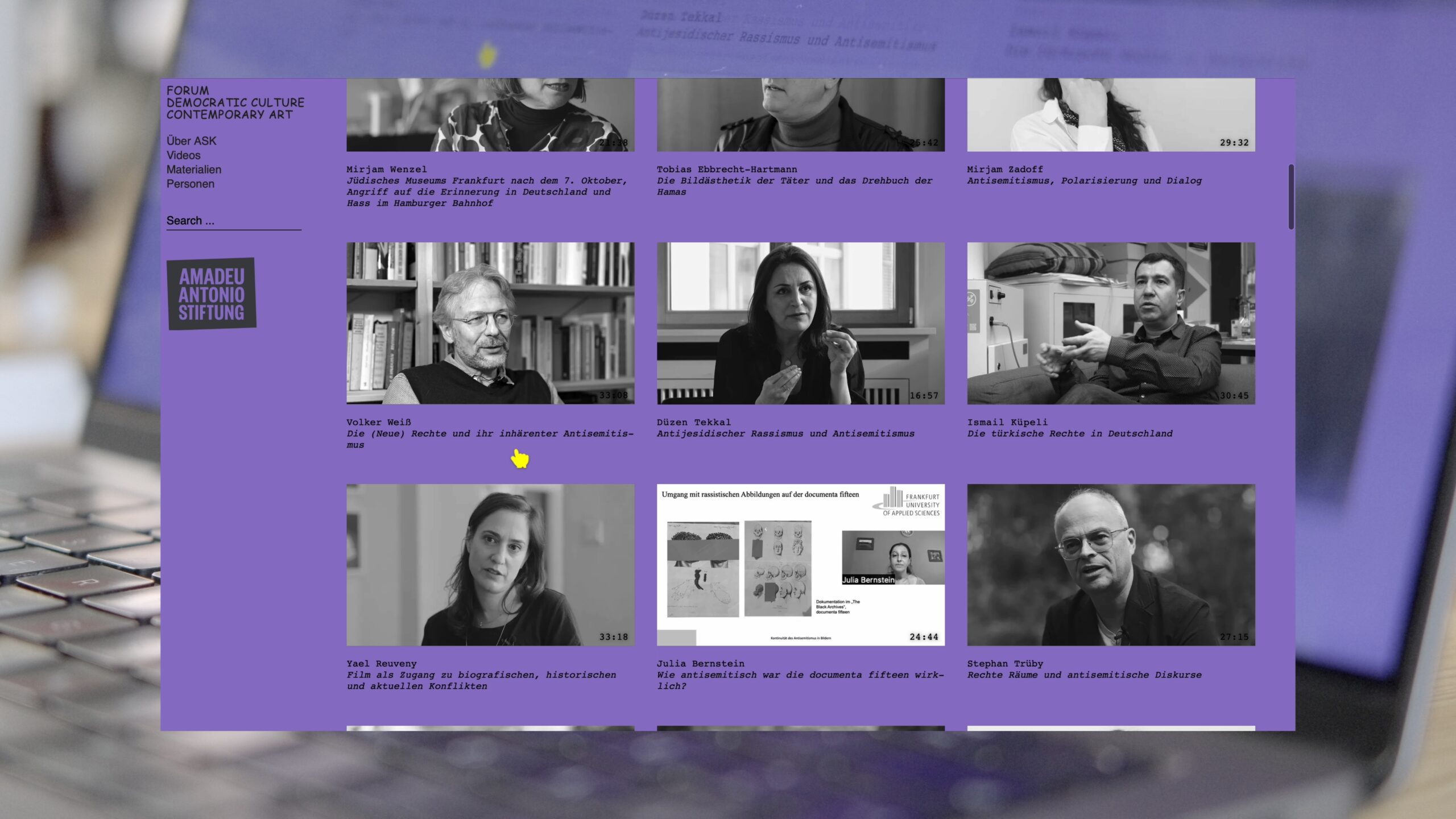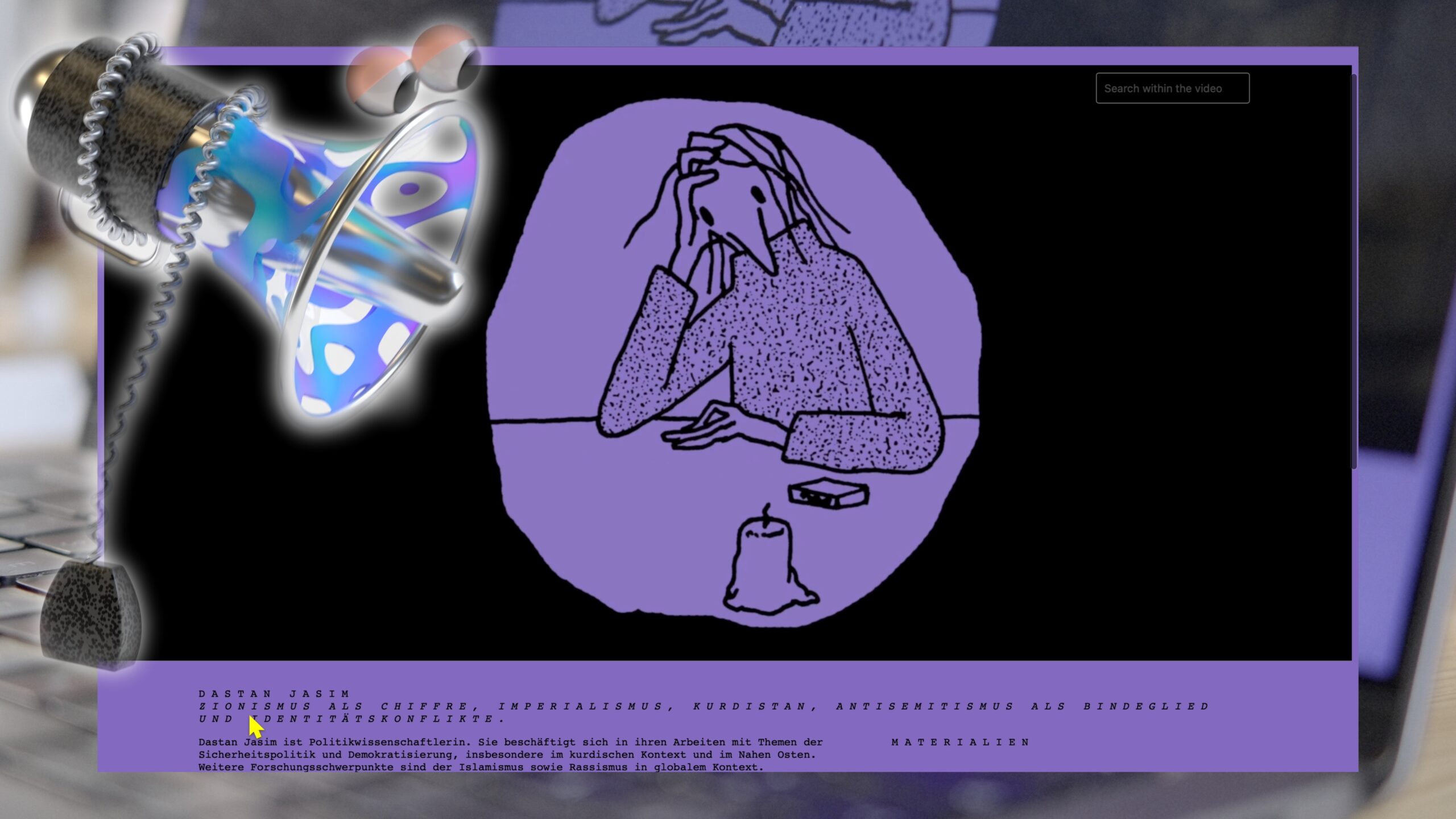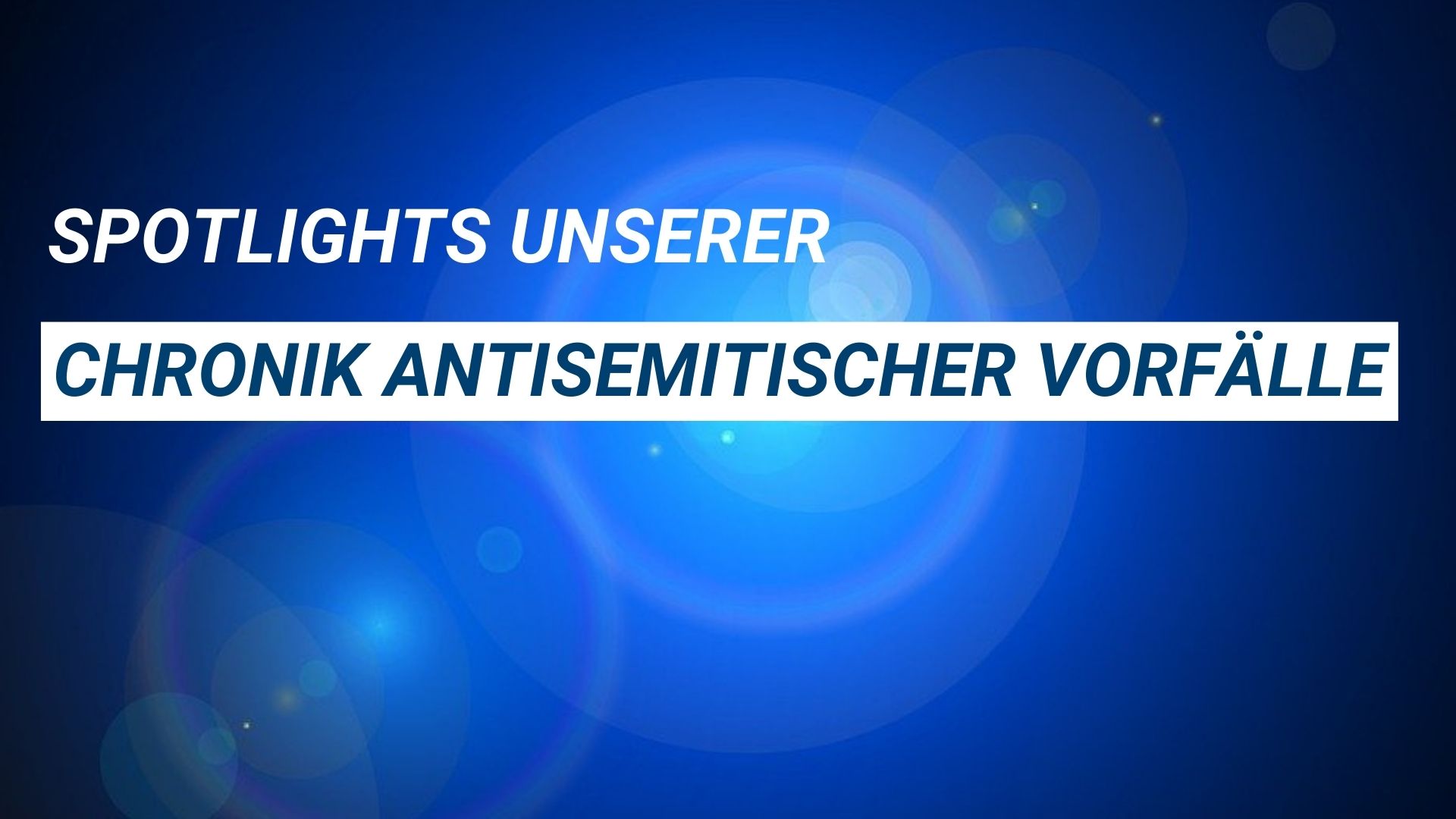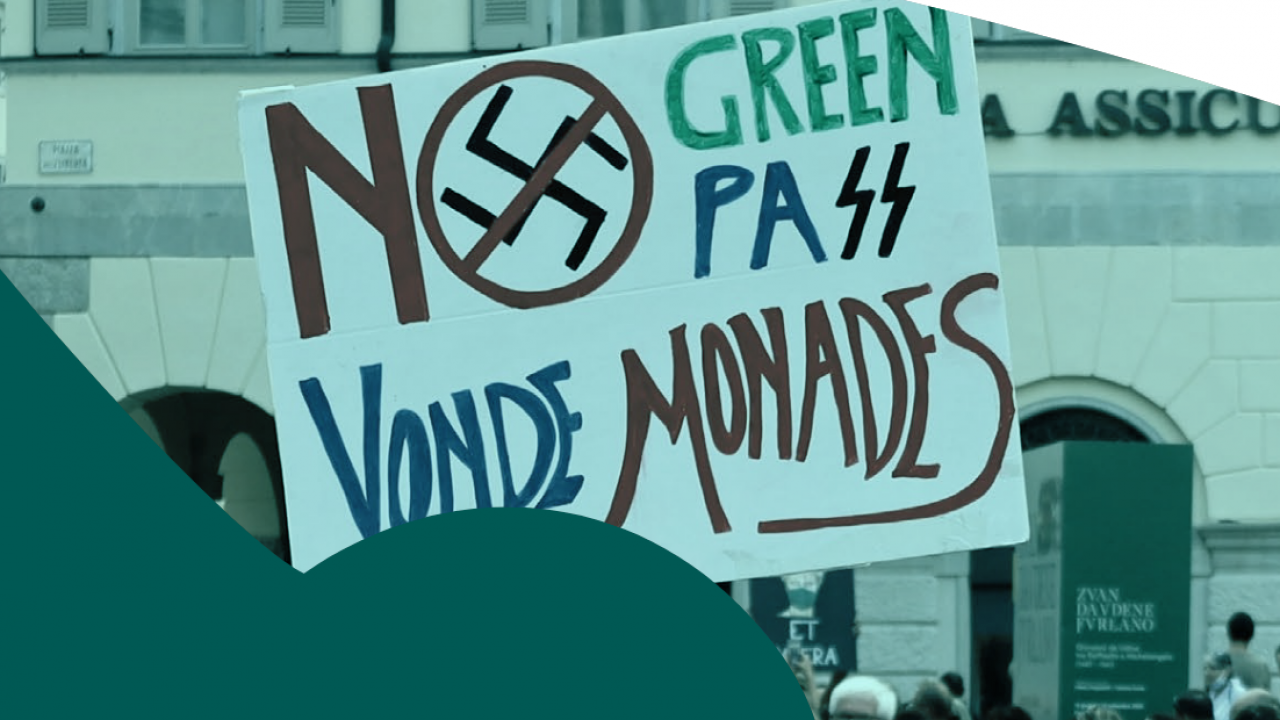What is the cultural function of antisemitism? Through which new and traditional narratives do the ideological elements of antisemitism permeate society? Does the antisemitic worldview find expression in artistic imagery? What role do current conflicts and debates around remembrance play in this?
“Antisemitism as a Cultural Technique” (ASK) is a growing, interactive interview archive and research tool on antisemitism. ASK compiles conversations with relevant experts and provides in-depth material on the cultural dimensions of antisemitism. The project focuses on the function and continuity of antisemitism and investigates the internal relationship between antisemitism and culture.
ASK – Voices Against Antisemitism
In our interview series “ASK,” various experts, artists, and activists speak out to illuminate antisemitism from diverse perspectives. Saba-Nur Cheema addresses antisemitism as a cultural imprint and warns against an increasingly polarized debate. Tobias Ebbrecht-Hartmann analyzes the image strategies of Hamas and their deliberate staging of the violence on October 7. Ronya Othmann criticizes double standards in the international cultural sector regarding sexualized violence against Jews. Düzen Tekkal discusses personal and political reactions to terrorism and calls for the defense of human rights. Anetta Kahane highlights the societal latency of antisemitic attitudes, while Benjamin Steinitz shows how antisemitism attacks democratic values and instrumentalizes human rights. Natan Sznaider, Kateryna Mishchenko, Volker Weiß, and Mirjam Zadoff also provide insight into tensions in remembrance politics, ideological continuities, and international shifts in discourse. Together, they make clear: antisemitism is a complex problem — and combating it is a societal task.
ASK was produced by the Forum for Democratic Culture and Contemporary Art (Forum DCCA) and funded by the Federal Government Commissioner for Culture and the Media (BKM). The Forum DCCA is a project of the Amadeu Antonio Foundation.
WHAT CAN ASK DO?
ASK is a collection of video interviews and a research tool. The videos can be searched by text and are linked with supplementary in-depth materials. All content can also be accessed via person search. Clicking on a person automatically highlights the associated video and additional material.

ASK was produced by the Forum for Democratic Culture and Contemporary Art (Forum DCCA) and funded by the Federal Government Commissioner for Culture and the Media (BKM). The Forum DCCA is a project of the Amadeu Antonio Foundation.



